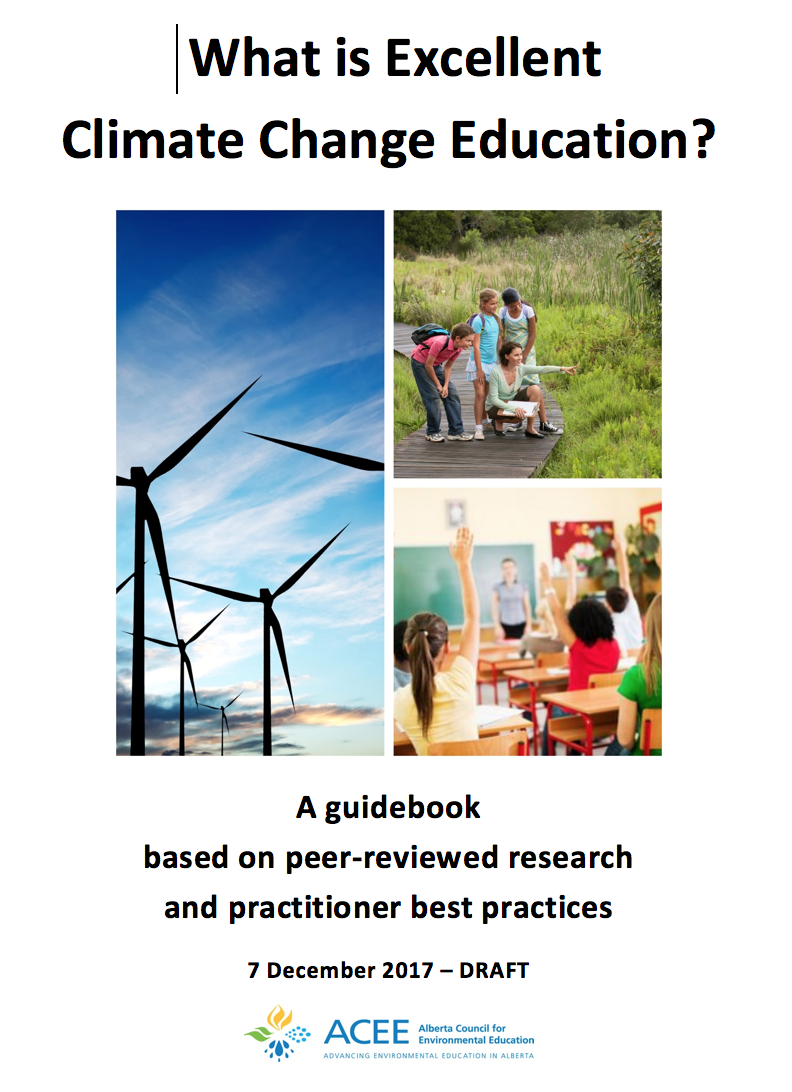What is Excellent Climate Change Education?
A guidebook based on peer-reviewed research and practitioner best practices.
We are proud to launch our new guidebook, which seeks to help answer the question “What is excellent climate change education?” We’ve pulled from several lines of evidence:
Over 140 peer-reviewed, refereed academic articles.
Non-academic publications from governments, NGO’s, etc.
Practitioner best practices.
Click here to watch the webinar presentation highlighting the document.
Some ‘big ideas’ from this document:
- Focus on the ‘solution’ space versus the ‘problem’ space of climate change.
- Responsible climate change education helps students learn HOW to think, not what to think.
- ‘No tragedies before Grade Four’ - programs should be developmentally appropriate.
- Always avoid fear.
- Make climate change 'us, here and now' not 'them, there and then'.
- Build a narrative that leads to a positive resolution – describe the world we want to see.
- Climate change is a matter of social - but not scientific - controversy.
- Climate change education includes student learning in energy, conservation, and the outdoors.
- Learners act because of how they feel, not what they know.
- Action on climate change must be both personal and public, and framed as part of a positive narrative around Albertans’ shared identity and pride.
- Make education place-based. Get outdoors.
- Climate change is different from other environmental issues, so be prepared.
- Connect to curriculum – and competencies.
- Encourage systems thinking.
- Connect the dots between Climate Change Mitigation, Adaptation, and Resilience.
- Program evaluation improves the program, highlights student accomplishments, and provides profile!



